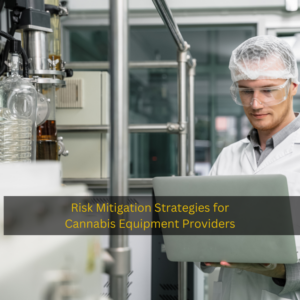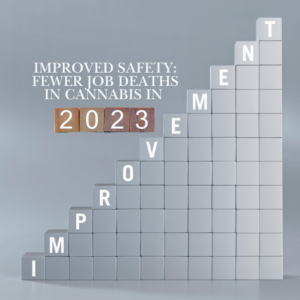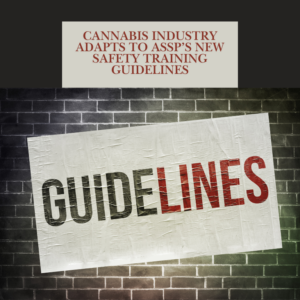Ensuring Cannabis Quality: The Importance of Pesticide Testing

As the cannabis industry matures and evolves, the emphasis on product safety and quality has never been more critical. One of the key components in ensuring that cannabis products are safe for consumption is rigorous pesticide testing. This process not only protects consumers but also upholds the integrity of the cannabis industry as a whole. With the rising popularity of cannabis products, from oils to edibles, understanding the significance of pesticide testing is essential for both producers and consumers alike.
Understanding Pesticides in Cannabis Cultivation
Pesticides are substances used to prevent, destroy, or control pests in agricultural practices. In cannabis cultivation, these chemicals may be used to manage insects, weeds, fungi, and other potential threats to the crop. While pesticides can be effective in increasing yield and protecting plants, they can also pose significant risks to human health and the environment if not used responsibly.
The cannabis plant, known for its versatility and potential therapeutic benefits, is particularly sensitive to pesticide residues. As such, testing for pesticides is essential to ensure that cannabis products are free from harmful chemicals that could compromise consumer health. With the increasing legalization of cannabis across various jurisdictions, the need for standardized pesticide testing has gained urgency.
The Risks of Pesticide Contamination
The implications of pesticide contamination can be severe. Residues left on cannabis products can lead to various health issues, including respiratory problems, skin irritations, and even long-term effects like carcinogenicity. For vulnerable populations, such as children and pregnant women, the risks are even greater.
Ingesting contaminated cannabis products can result in acute poisoning, allergic reactions, and other adverse health effects. Moreover, the long-term consumption of products with pesticide residues can lead to chronic health conditions, which raises significant public health concerns.
Additionally, contaminated cannabis can lead to significant financial repercussions for producers. Affected products may be recalled, damaging the brand’s reputation and leading to loss of consumer trust. In an industry where reputation is paramount, the consequences of pesticide contamination can be devastating.
Regulatory Standards and Testing Methods
To combat the risks associated with pesticide use in cannabis cultivation, various regulatory bodies have established stringent testing requirements. In many regions, cannabis must undergo extensive testing before it reaches the consumer market. These regulations are designed to ensure that products are not only safe but also labeled accurately.
Pesticide testing typically involves several steps:
Sampling: Representative samples are collected from the cannabis batch. Proper sampling techniques are crucial to ensure that the results reflect the entire batch’s pesticide levels.
Laboratory Analysis: Samples are sent to accredited laboratories where they undergo comprehensive testing using methods such as gas chromatography-mass spectrometry (GC-MS) or high-performance liquid chromatography (HPLC). These techniques can accurately detect and quantify pesticide residues at very low levels.
Reporting: Once testing is complete, laboratories provide a detailed report outlining any pesticide residues found, along with their concentrations. This report is crucial for producers to make informed decisions about product safety and for consumers to understand what they are consuming.
The Role of Producers in Ensuring Quality
Cannabis producers play a vital role in ensuring that their products are free from harmful pesticide residues. This responsibility begins with careful selection of pest control methods. Many cultivators are now opting for organic or integrated pest management (IPM) techniques, which minimize the use of synthetic pesticides and prioritize natural alternatives.
Producers should also maintain transparency about their cultivation practices. By sharing information regarding pesticide use and testing results, they can foster trust with consumers, who are increasingly concerned about the quality and safety of the products they purchase. Brands that prioritize transparency and quality assurance are likely to build a loyal customer base in the long run.
Moreover, investing in ongoing education and training on the safe use of pesticides can help cultivators minimize risks. Understanding the appropriate application rates, timing, and safety protocols for pesticide use can significantly reduce the likelihood of contamination.
The Consumer’s Perspective
For consumers, awareness of pesticide testing is crucial when selecting cannabis products. As the market expands, consumers must be diligent about choosing products from reputable brands that prioritize safety. Lab testing results should be readily available, allowing consumers to make informed choices.
Many consumers are now seeking products that are labeled as “pesticide-free” or “organically grown.” This shift in consumer behavior is pushing producers to adopt safer cultivation practices, as meeting consumer demand for clean products can lead to competitive advantages in the market.
Moreover, consumers have the right to be educated about what they are putting into their bodies. Knowledge of pesticide testing and the potential risks associated with pesticide residues empowers consumers to make safer choices and advocate for higher quality standards in the cannabis industry.
The Future of Pesticide Testing in Cannabis
As the cannabis industry continues to grow, so too does the need for robust pesticide testing protocols. Regulatory frameworks are expected to evolve, potentially leading to even stricter standards and requirements for pesticide use and testing.
Furthermore, advancements in technology may pave the way for more efficient testing methods, enabling faster turnaround times and broader accessibility to testing services. As public awareness of cannabis safety increases, both consumers and producers will benefit from a well-regulated and transparent industry.
In conclusion, pesticide testing is a crucial element in ensuring the quality and safety of cannabis products. By protecting consumer health, maintaining industry integrity, and promoting responsible cultivation practices, pesticide testing plays an integral role in the future of cannabis. As both the market and regulatory landscape continue to evolve, the emphasis on safety and quality will remain paramount, driving the industry towards a more sustainable and responsible future.











